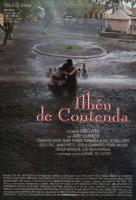Haile Gerima
Articles tagged with Haile Gerima
Tag Archive
- ...
- 25 april
- african culture
- Afropolitanism
- arquivo
- art gallery
- artist
- Artur Nunes
- autonomy
- Backlands
- Bahia
- Batida
- bell hooks
- black history
- black people
- blackness
- Cabo Verde
- Cartum
- CES
- Cidade do Cabo
- cinema
- Cokwé
- colonial unconscious
- colonialism
- Conceição Evaristo
- cores
- crioulo
- curatorship
- dailylife
- dj lucky
- Dominique Zinkpé
- Dulce Fernandes
- e a Raquel da Silva. Menciono também de passagem: Homi Bhabha
- Europe
- Faustin Linyekula
- Feira
- Felwine Sarr
- fotography
- games without borders
- geological phenomena
- glotophobia
- Harare
- ify obi
- illegal
- imigration
- impasse
- Jihan el Tahri
- Joana gomes
- judith butler
- justiça social
- kurdish
- Literatura
- Looking After Freedom?
- luso-tropicologia
- magazine
- Margarida Cardoso
- memoirs
- Mia Couto
- midterms
- mitos
- Monuments
- mudança
- Music
- músicas do mundo
- Mwamby Wassaky
- nepal
- O que temos a ver com isto? O papel político das organizações culturais
- Olavo Amado
- opression
- ortigrafia
- Pancho Guedes
- Parangolé
- património
- Paul Gilroy
- Paul Theroux
- Paulo Faria
- percepção
- Periferia
- poesia caboverdiana
- polish photography
- políticas de ação afirmativas
- Portugal
- programation
- refineries
- Ricardo Farinha
- safari
- Salazar
- small axe
- Sociedades Africanas
- space
- stage
- Sudan
- Territories
- theo gould
- toponímia
- tourism
- turismo
- Viriato da Cruz
- Witchcraft
- Zimbabwe
 It’s about contesting narratives: not only narratives about Africa, Africans, Capeverdeans, and about our diverse perspectives, but also narratives about what cinema is, and what it can be, who gets to watch and be watched, who gets to speak and be heard. It is slow but necessary work. It is the work of re-inscribing our collective imagination with images that belong to us and that, in turn, transform us, and then the world.
It’s about contesting narratives: not only narratives about Africa, Africans, Capeverdeans, and about our diverse perspectives, but also narratives about what cinema is, and what it can be, who gets to watch and be watched, who gets to speak and be heard. It is slow but necessary work. It is the work of re-inscribing our collective imagination with images that belong to us and that, in turn, transform us, and then the world. 